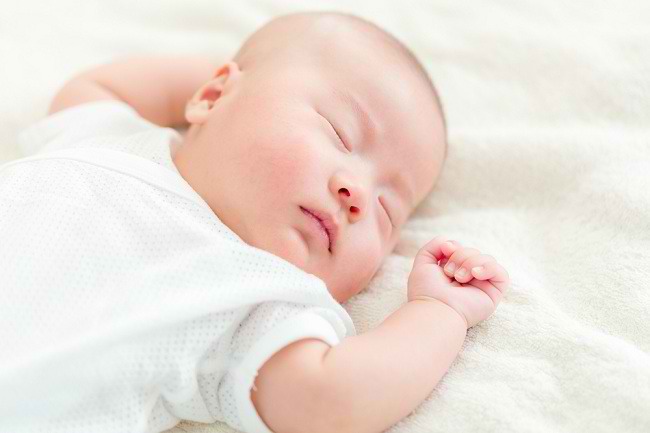Beware of the Breath of a Newborn Baby Sounding
Newborn breaths that occur occasionally generally are normal. But Mother still needs to be vigilant, because sometimes the breath sounds in this baby can be a sign that the Little One is experiencing illness , t especially if accompanied by symptoms certain .
There's no need to panic if the breath of your newborn sounds or sounds like a snort. This is because newborns still need time to adapt to breathe through their nose. This condition usually lasts for several weeks.

Breath sounds in a newborn baby can also be caused by the presence of mucus in the nose. The baby's airway can not clean the mucus itself properly, so that the air flow when breathing through the nose will make a sound.
In addition, newborn airways are still narrow in size. This can also make mucus easily trapped in the airway and cause noise when he breathes.
However, breathing sounds in a newborn can also indicate that the child has difficulty breathing. One reason is bronchiolitis. Usually this condition is accompanied by other symptoms, namely the baby appears congested, pale, bluish lips, fever, and weakness.
Bronchiolitis Causes and Symptoms
Bronchiolitis is inflammation caused by a viral infection in the bronchioles, the smallest respiratory tract in the lungs. Bronchiolitis often occurs in children under two years old. Even newborns can experience it, but it is more common in the age of 2-6 months and premature babies.
Symptoms of bronchiolitis include:
- Cough
- Nasal congestion
- Lots of mucus in the nose
- Short, fast breathing that lasts more than two days
- A wheezing sound
- Fever
- Fussy and sleeplessness
Although bronchiolitis is generally mild, babies with certain conditions can experience severe bronchiolitis, for example babies born prematurely, suffer from congenital heart disease, or have birth defects.
Bronchiolitis Treatment
The breath of a newborn that is caused by bronchiolitis needs medical treatment. If the baby appears tight, the doctor will suction mucus in the baby's airway to relieve his breathing. If needed, the doctor will also provide oxygen to the baby, as well as intravenous fluids to prevent dehydration.
For mild bronchiolitis, treatment can be done independently at home with:
- Give breast milk more often.
- Clean the baby's nose from mucus. You do this by dripping a solution of sterile salt water in his nose.
- Keep the baby away from dirty air, such as dust and cigarette smoke.
- Creating a comfortable and calm atmosphere, so the baby can rest well.
With adequate care, bronchiolitis will usually improve within 10 to 14 days. Antibiotics are not needed, because bronchiolitis is caused by a virus. If there is a fever, fever-lowering drugs can be given, such as paracetamol.
To make it easier to breathe while sleeping, lay the baby in a slightly higher head position. However, avoid supporting your baby's head with a pillow if he is under one year old.
The breath of a newborn baby is indeed normal, but it still monitors the condition of the little one. Beware of breathing sounds accompanied by tightness, the baby appears pale or bluish, and does not want to suckle. If this is the case, immediately bring your child to the doctor to get treatment.
Label : Family
Comments
Post a Comment